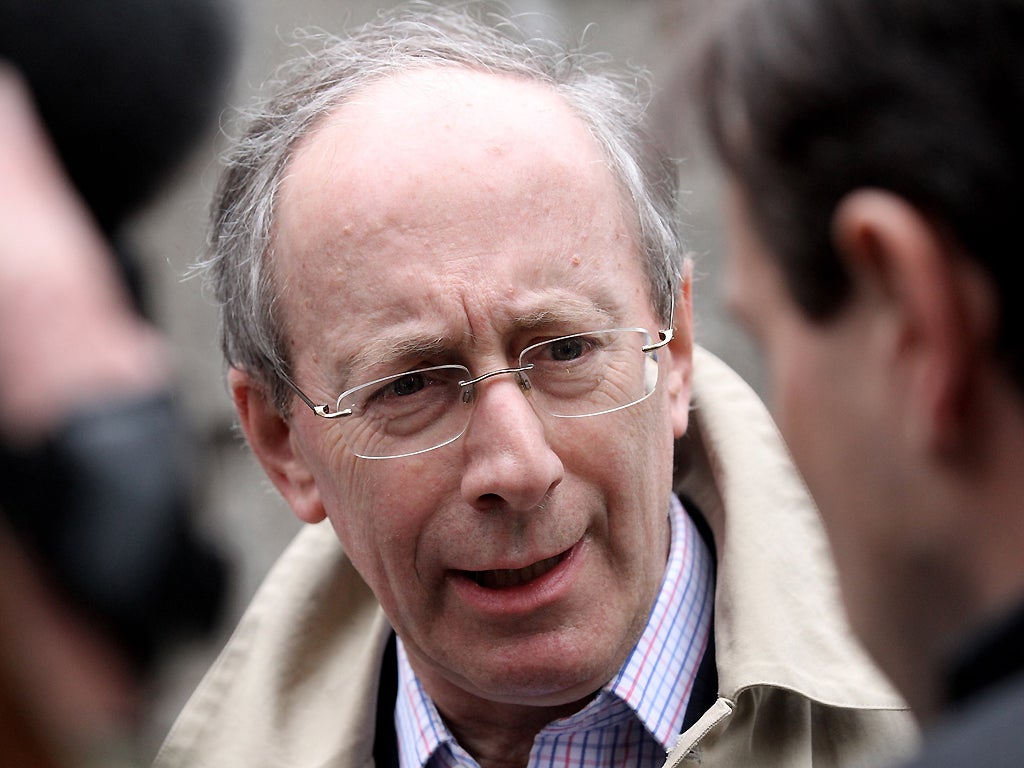A former foreign secretary has warned Sir Keir Starmer and David Lammy that they must use this weekend’s Munich defence and security conference as an opportunity to stand up to Donald Trump over Ukraine.
Tory grandee Sir Malcolm Rifkind raised the spectre of the infamous 1938 Munich conference, where the then British prime minister Neville Chamberlain struck the “peace for our time” deal with Hitler and allowed him to invade Czechoslovakia.
It comes as Sir Keir, in an interview with ITV’s Robert Peston, did not guarantee that Ukraine would have a seat at the table in the talks about ending the war with Russia, only saying that President Volodymyr Zelensky “must be involved”.
Mr Trump has suggested that a meeting between him and Vladimir Putin in Saudi Arabia could resolve the war, after the two had a telephone conversation in which the US president praised his Russian counterpart. US defence secretary Pete Hegseth has suggested that Russia could keep Crimea as part of a deal, and that Ukraine should be barred from joining Nato.
This comes ahead of foreign secretary Mr Lammy having his first meeting with Mr Trump’s new secretary of state Marco Rubio at the conference in Munich, with Ukraine expected to be at the top of the agenda. To complicate matters, the proposed deal on the Chagos Islands is also up for discussion.
Offering advice to Mr Lammy ahead of the meeting, Sir Malcolm said: “He should demand that the Ukrainians must be part of the negotiating team with Putin, not just consulted. Otherwise, it will be like Munich. Chamberlain and [Edouard] Daladier [the prime minister of France], but no Czechs.
“Europe, too, should be part of the direct negotiations, but that is not as vital as Zelensky.

“If Trump refuses, he should be reminded that Europe is no longer top priority for the US! His words not mine.”
Sir Keir insisted in his interview that Ukraine’s path to joining Nato is “irreversible”, but he refused to strengthen the language he used on Wednesday regarding talks on the future of the country. He also noted that Ukraine needs “to be at the heart” of the talks.
He said: “Ukraine needs to be in the strongest possible position. Ukrainians want peace. Those that have had to flee the country want to go back to their country, but this has to be led by Ukraine. There’s no negotiation about Ukraine that doesn’t involve Ukraine, and Ukraine needs to be in the strongest possible position.”
Pushed on the matter of the country’s path to Nato membership, Sir Keir added: “Well, my position is the Nato position. This was discussed at the summit that we had last year in Washington, where it was agreed amongst all Nato members that there should be an irreversible path for Ukraine to Nato membership.
“It was a pathway over time. But what matters most, I think, is that we stand by Ukraine. We put Ukraine in the strongest possible position. And that we make sure that, if there is a cessation of hostilities, if there’s an end to the fighting, that any peace – which is desperately needed, and wanted – is just, and it is lasting and capable of enduring.
“And what we don’t want to see is simply a pause in the fighting that gives Russia the space and the opportunity to rearm and go again. So, any pause, any stopping of the fighting, has to be a lasting peace.”
Earlier, UK defence secretary John Healey said: “Russia remains a threat well beyond Ukraine.
“My message in these discussions will be that there can be no negotiation about Ukraine without Ukraine, and Ukraine’s voice must be at the heart of any talks.
“Ukrainians are fighting bravely ... It’s our job, as defence ministers here at Nato, to put them in the best position to secure a lasting peace through strength.”
Former prime minister Rishi Sunak has suggested that the UK should be prepared to put soldiers on the ground in Ukraine to guarantee the peace. He said that, in the event of any peace deal, Britain and its European allies “must lead in providing Ukraine [with] military support and potentially military presence across land, air and sea, to give Ukraine confidence that any peace will endure.”







